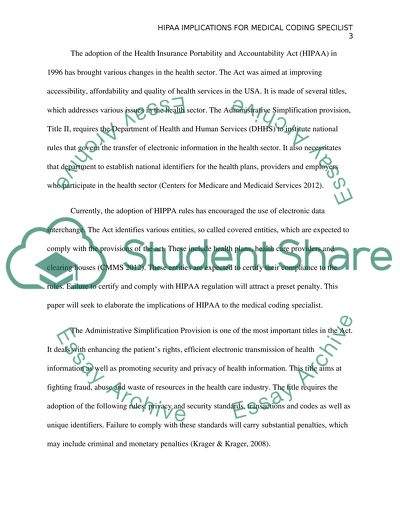Cite this document
(“HIPAA Implications for Medical Coding Specialist Research Paper”, n.d.)
Retrieved from https://studentshare.org/health-sciences-medicine/1444994-hippa-implications-for-medical-coding-specialist
Retrieved from https://studentshare.org/health-sciences-medicine/1444994-hippa-implications-for-medical-coding-specialist
(HIPAA Implications for Medical Coding Specialist Research Paper)
https://studentshare.org/health-sciences-medicine/1444994-hippa-implications-for-medical-coding-specialist.
https://studentshare.org/health-sciences-medicine/1444994-hippa-implications-for-medical-coding-specialist.
“HIPAA Implications for Medical Coding Specialist Research Paper”, n.d. https://studentshare.org/health-sciences-medicine/1444994-hippa-implications-for-medical-coding-specialist.


